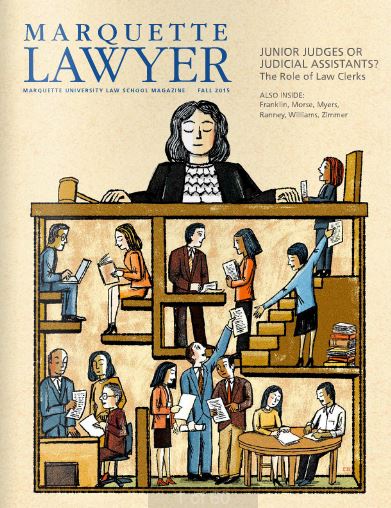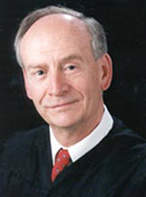Differences Between Supreme Court Candidates Clear in Eckstein Hall Debate
Antonin Scalia and Ruth Bader Ginsburg were among the US Supreme Court justices who were invoked Tuesday night as role models by the candidates in the race for a seat on the Wisconsin Supreme Court that will be on the ballot April 5.
But did either of them ever have to go through the kind of election campaigning that Justice Rebecca Bradley and Appeals Court Judge JoAnne Kloppenburg are immersed in now?
A one-hour debate between Kloppenburg and Bradley at Eckstein Hall was moderated by Mike Gousha, Marquette Law School’s distinguished fellow in law and public policy and a political analyst for WISN television. The debate was shown live on WISN and other stations around the state, with some stations scheduling it for broadcast later.


